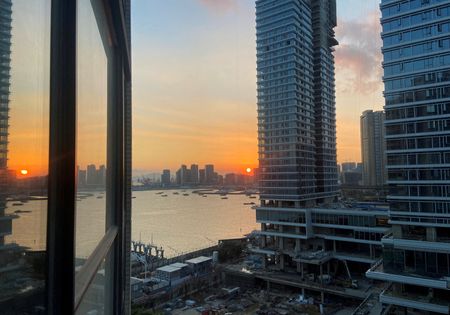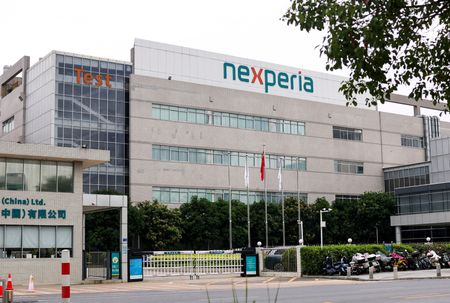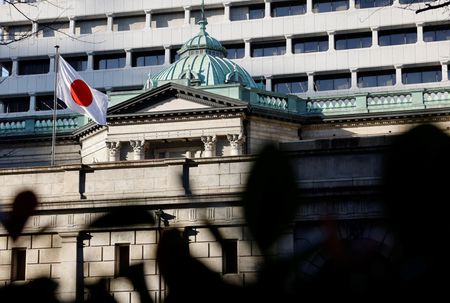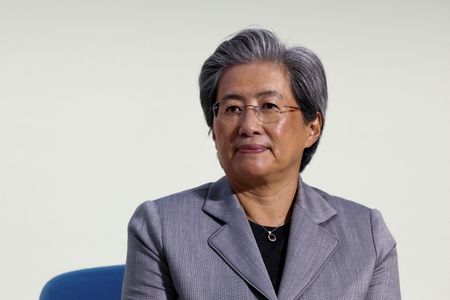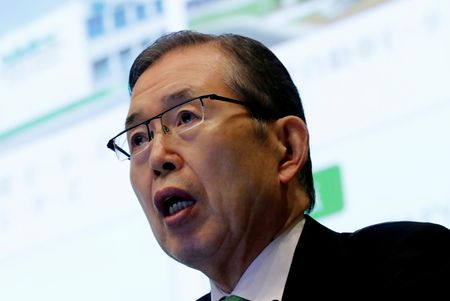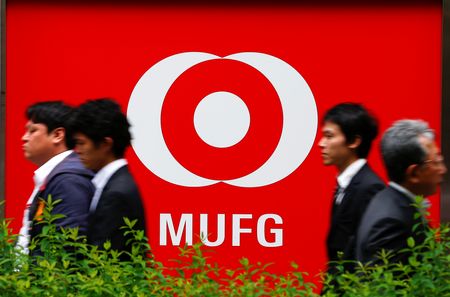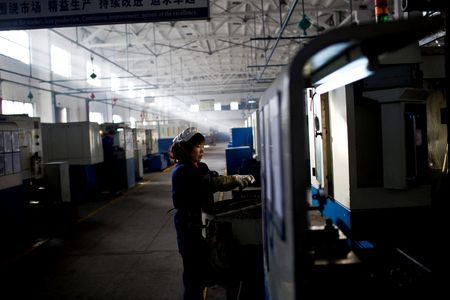By Clare Jim
HONG KONG (Reuters) -Stocks and bonds of Chinese property developers stretched their gains into Thursday on hopes a slew of recent government measures would help ease a funding squeeze in the embattled sector, even as another developer warned of default.
Beijing unexpectedly lowered borrowing costs on its medium-term loans for the first time since April 2020, and cut its benchmark lending rates for corporate and household loans for a second straight month.
Sources have told Reuters that policymakers were also drafting nationwide rules to make it easier for developers to access funds from sales still held in escrow https://www.reuters.com/world/china/exclusive-china-drafts-rules-ease-property-developers-use-escrow-funds-sources-2022-01-19 accounts.
Better access to escrow funds would improve short-term liquidity and help developers buy time “to meet their debt repayments until property sales show meaningful recovery,” expected in late March or April, brokerage Jefferies said.
Citi agreed that improving mortgage and potential easing of escrow accounts “could help avoid the worst scenario,” but it cautioned there were still short-term overhangs including expected sales decline in the first quarter and a few more developers seeking offshore bond extensions.
The Hang Seng Mainland Properties Index closed 4.6% higher, up for a third straight day, led by property firms deemed facing liquidity pressure.
Sunac China surged 15.2%, while Kaisa Group jumped 13.3%.
Shimao Group and Logan Group rose 12.1% and 10.1% respectively.
Sunac’s April 2024 dollar bond rose to 63.5 cents on the dollar in late afternoon Asian hours, data from Duration Finance shows, versus 41.8 a day ago.
Its three yuan bonds also surged 20% during the morning, prompting temporary suspensions.
The bonds rallied even as Fitch downgraded Sunac to “BB-” from “BB”, with a negative outlook, citing decreasing financial flexibility amid high capital-market volatility.
Sunac has transferred 4.25 billion yuan ($670 million) to pay for its two onshore debts coming due in the next three weeks, a person close to the company said.
Sunac declined to comment.
Shares in Guangzhou-based China Aoyuan also reversed early losses to climb 3.2%, even though the developer said late on Wednesday it planned not to make principal and interest payments for all its offshore debt, and was working on a restructuring proposal.
Financial media outlet Cailianshe reported on Thursday the provincial and city governments where Aoyuan is based had stepped in to resolve its debt crisis, and the developer may hand its largest shareholder position to a state-owned enterprise.
Regulatory curbs on borrowing have driven the sector into crisis, highlighted by China Evergrande Group which was once China’s top-selling developer but is now the world’s most indebted property firm with liabilities of $300 billion.
In recent months, Beijing has taken steps to restore stability, including making it easier for state-backed developers to buy up distressed assets https://www.reuters.com/business/shimao-group-unit-talks-with-lender-missed-trust-loan-payment-2022-01-07/#:~:text=SHANGHAI%2FHONG%20KONG%2C%20Jan%207,liquidity%20crisis%20in%20the%20sector of indebted private firms, according to a source.
“Overall, we find improved top-level policy clarity since December as a downside protection, and impending measures to protect the real estate sector will bring a healthier 2022 than 2021,” Citi said in its report.
($1 = 6.3432 Chinese yuan)
(Reporting by Clare Jim Editing by Himani Sarkar and Mark Potter)

